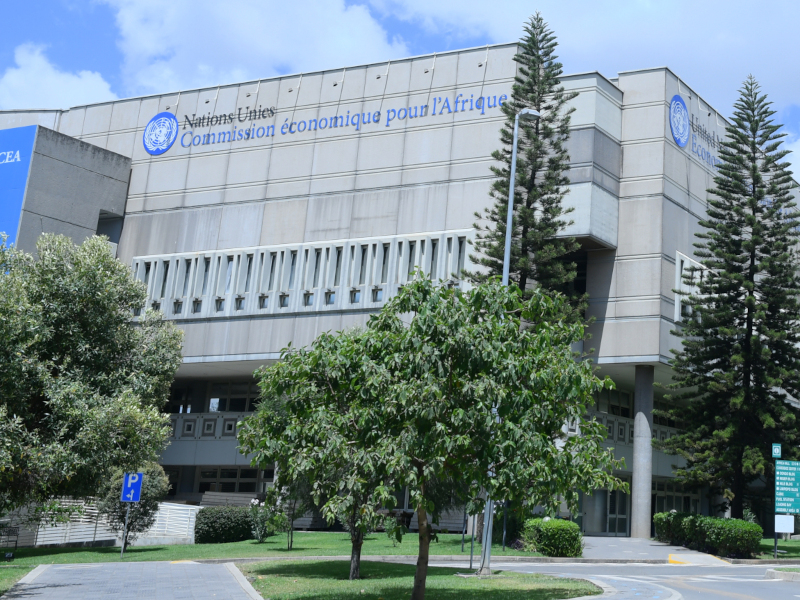New York, 17 July 2025 (ECA) - Rising debt, geopolitical instability and declining aid flows are intensifying external pressure on African economies.
In a briefing to the Africa Group of ambassadors at United Nations (UN) headquarters, Claver Gatete, Executive Secretary of the Economic Commission for Africa (ECA, highlighted the economic pressures facing African countries and outlined ECA’s response, from budget stabilization and strengthened data systems to advancing regional priorities.
Held at the Permanent Mission of the African Union to the UN, the session came amid growing uncertainty for African economies, with many facing debt distress, inflation and trade disruptions driven by global policy shifts.
Mr. Gatete described a macroeconomic picture that remains fragile despite signs of recovery. Real GDP across the continent is projected to grow between 2.9% and 3.6%. However, over half of African countries now carry public debt exceeding 60 per cent of GDP. Seven are officially in debt distress, while 11 more are considered at high risk.
Steep currency depreciation, inflation and widening current account deficits have deepened the strain. In Nigeria, the naira lost nearly 95 per cent of its value between 2023 and 2024. In Egypt, the figure stands at 50 per cent since 2023. The average fiscal deficit across the continent reached 5.1 per cent of GDP in 2024.
“External financing is drying up, but the pressure on government budgets keeps growing,” said Mr. Gatete. “We cannot overstate the urgency of domestic resource mobilization.”
He also warned that Africa’s exposure to global volatility is deepening. Official development assistance dropped to 2.1 per cent of GNI in 2023, down from 3.4 per cent in 2006. Major donors, including the United States, United Kingdom and Germany, have announced further cuts.
At the same time, protectionist policies in developed economies are beginning to impact Africa’s trade. Forthcoming joint research by ECA, the African Union Commission and the African Development Bank suggests that new United States import tariffs could reduce Africa’s exports to the United States by up to 21.5 per cent.
“This goes beyond trade volumes,” said Mr. Gatete. “It affects industrial jobs, regional supply chains and Africa’s voice in shaping the terms of engagement.”
The session underscored ECA’s support in domestic taxation, debt sustainability, data systems and AfCFTA implementation. Recent support includes property tax system assessments in Ethiopia, transfer pricing audits in Mauritania and customs training under the AfCFTA in East Africa.
The Commission is also serving as a knowledge partner to South Africa’s G20 presidency, contributing to recommendations for the Leaders’ Summit in November. ECA is working closely with the African Union and multilateral development banks to advance reforms on special drawing rights, blended finance and the governance of these institutions.
On trade, ECA is supporting Member States in finalizing and operationalizing national AfCFTA strategies.
Throughout the session, Mr. Gatete emphasized that technical capacity must translate into political leverage. “Africa’s voice must be coherent, coordinated and grounded in evidence,” he said.
He urged stronger alignment between Africa’s permanent missions in New York and Addis Ababa, and the regional institutions supporting Member States on the ground. “This is a moment that demands unity of purpose and credibility of message.”
Held on the margins of the High-Level Political Forum, the session reinforced the importance of anchoring Africa’s economic diplomacy in homegrown expertise and credible evidence.
Mr. Gatete was joined virtually by Mr. Stephen Karingi, Director of ECA’s Macroeconomics, Finance and Governance Division, who contributed to the discussion.
Issued by:
Communications Section
Economic Commission for Africa
PO Box 3001
Addis Ababa
Ethiopia
Tel: +251 11 551 5826
E-mail: eca-info@un.org
